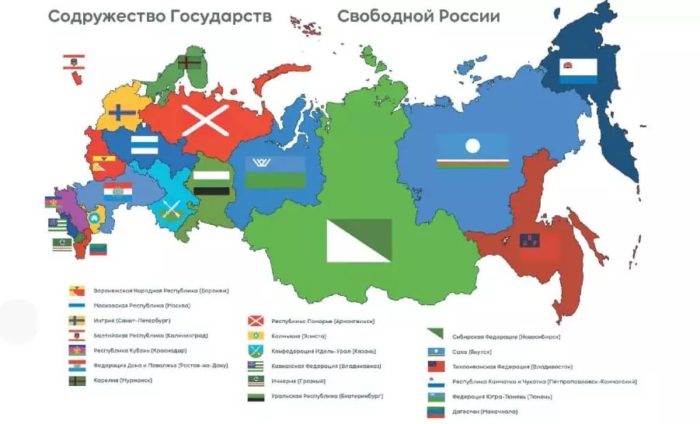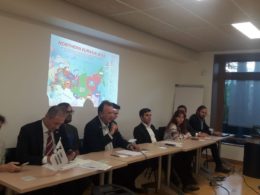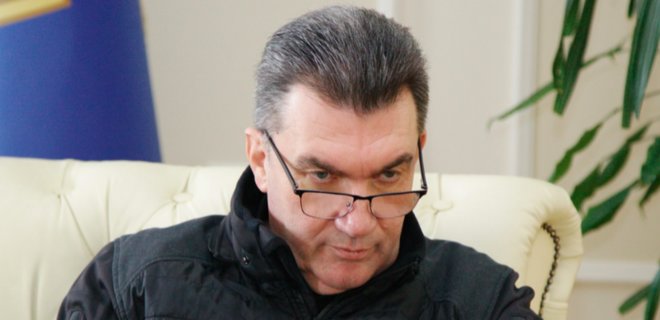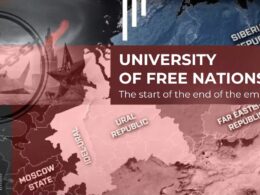Although the context was very different in 1989-1991, the tasks and challenges remain the same: it is essential to integrate and modernize the “eastern side of the wall”. The European Union and Ukraine as a full-fledged member should participate in the reconstruction of free and independent states in post-Russia space and assist in the creation of a New Eastern Policy for the New Eastern Europe.
The Third Free Nations of Russia Forum, devoted to the European path and the self-determination of independent states in the Baltic and Scandinavian post-Russia space, was held in Gdansk, Poland on 23-25 September, 2022. Politicians and experts from Russia and other countries discussed the fate of Karelia, Ingria, Königsberg (Kaliningrad), Smaland (Smolensk Region), Novgorod, Pskov, Pomerania, and Komi.
At the end of the Forum, the participants issued the Gdansk Manifesto: a Plan for the Reconstruction of Post-Russia States.
Today, say the experts, it is no longer a question of decolonizing and deconstructing the Russian Federation, and liberating its indigenous peoples, the eastern Slavic regions and predominantly Russian regions from the imperial Kremlin center.
It is not a question of WHEN or HOW, but rather a question of WHAT WILL HAPPEN NEXT?
What kind of collective security structure will emerge in the regions east of Helsinki, Riga, Vilnius, Kyiv, and Tbilisi?
According to the participants, there is only one correct answer: Europe (the EU, including Ukraine as a full-fledged member) together with the United Kingdom should take responsibility for the liberation and decolonization of the indigenous peoples and eastern Slavic regions of the present Russian Federation, and should also lead in the reconstruction of these independent states.
The participants underlined that it was important for the EU to initiate such a policy and strategy in relation to post-Russia space. The key role in this process could be assumed by the Baltic States, Scandinavia, and the Intermarium region (Poland, Lithuania, Ukraine, the Czech Republic, Estonia, Finland, Sweden, Latvia, Slovakia, Norway, Romania, Georgia, Denmark, etc.) - the closest neighbors of the Russian Federation, which also understand their imperialistic neighbor and know how to deal with the Kremlin.
However, Lithuanian MP Andrius Tuckus believes that Russian elites are preparing to restructure the government “from the top”. As an example, he cited appeals from different Russian municipalities demanding that Putin be held accountable for the war unleashed against Ukraine. The fact that these deputies are not yet in jail suggests that “there is a decree from above for a new perestroika”.
“I'm somewhat of a pessimist. The Russians won’t give up their imperialistic ambitions and way of thinking right away,” said Tuckus.
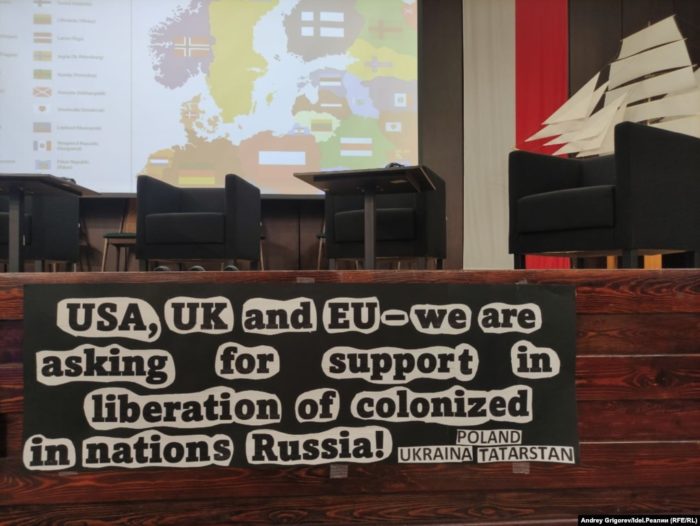
With the above in mind, the participants of the Third Free Nations Forum of Post-Russia space, as well as the representatives of the peoples and regions of Karelia, Ingria, Königsberg, Smolensk, and the European states call upon:
- The people of Karelia, Ingria, Königsberg (Baltic Republic), Lapland, Smaland, Novgorod, Pskov, Biarmia/Pomorie, Komi and all neighboring regions to launch an active fight for their liberation from the imperial, terrorist Russian state;
- The EU and NATO states to provide support to these nations during the process of proclamation and/or renewal of independence (including the activities of the governments in exile, and in the training of their self-defense forces);
- The EU and NATO states to refuse support and any form of assistance to the imperial “Russian opposition”. In the event of the fall of Putin’s regime, the so-called “Russian opposition” will not pursue a policy of decolonization and denuclearization of the Russian Federation. In fact, they will return to a policy of revanchism, militarism, and to traditional imperial and authoritarian practices;
- The EU and NATO states to provide maximum support and assistance and to publicly declare a European and Euro-Atlantic perspective (plus parameters for future integration) for independent, free and democratic Karelia, Königsberg (Baltic Republic), Ingria, Lapland, Smaland, Novgorod, Pskov and Biarmia/Pomorie;
- The NATO states, the EU, together with Ukraine (as a future member of the EU and NATO), and the United Kingdom to formulate a clear strategy and a step-by-step Plan for the Reconstruction of Post-Russia States, which will ensure a quick, nonviolent and constructive decolonization of the Russian Federation, as well as the denuclearization and demilitarization of the fore-mentioned post-Russia states (including denazification, decommunization and lustration) and allow for their sustainable social and economic development, good relations and mutually beneficial partnerships.
The Second Free Nations of Russia Forum was held in Prague on July 22-24. The event was dedicated to the decolonization of the Russian Federation. Most participants advocated the creation of independent states from what is now referred to as the Russian Federation.
Related:
- “Not our war”: leaders of Bashkir national movement call on countrymen to boycott Russia’s war against Ukraine
- Many non-Russians inside Russia oppose Putin’s war; some see end of empire approaching
- “Russian” combat losses in Ukraine appear to be disproportionately non-Russians or ethnic Russians from rural areas
- Inter-ethnic animosity saps effectiveness of Russia’s army in Ukraine
- National minorities of Russian Federation discuss its deimperialization in Prague

